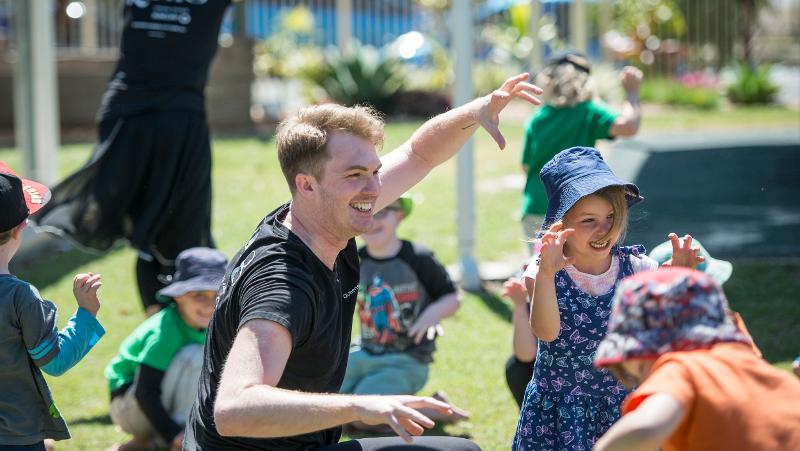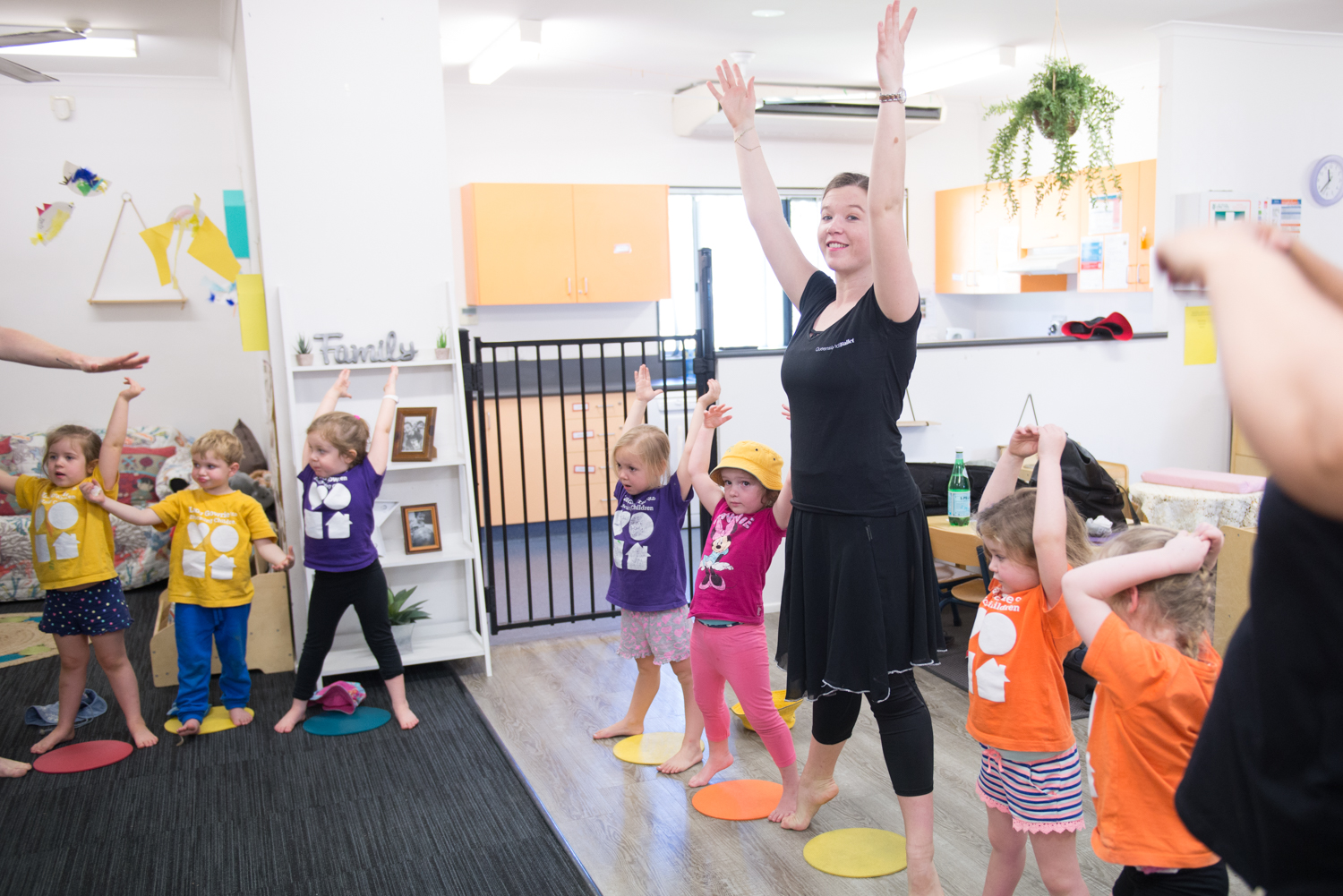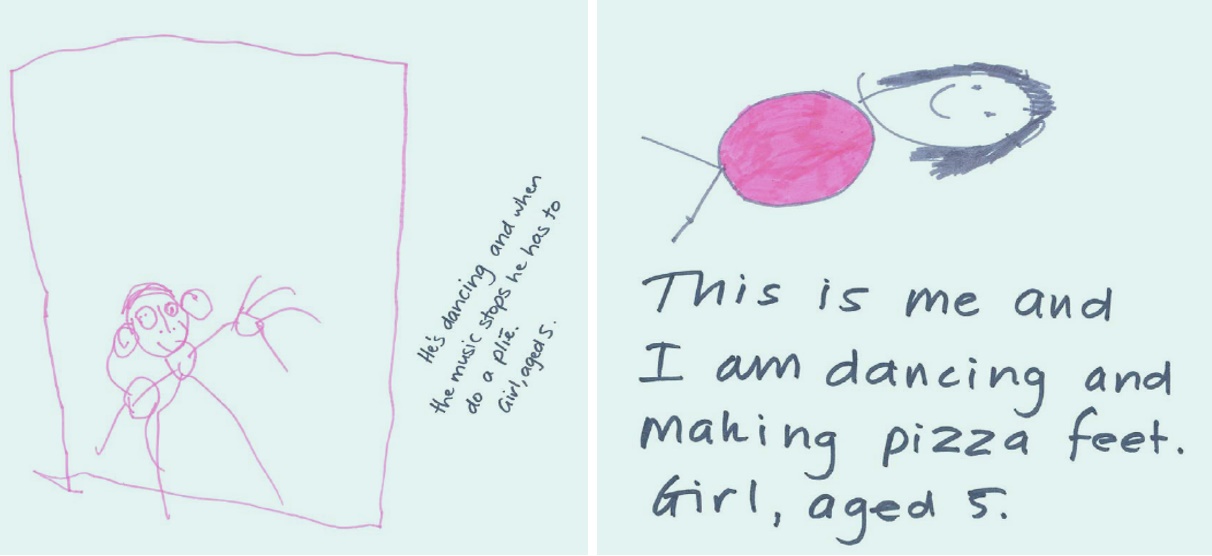
Children from a Caboolture kindergarten have discovered the joy of dance, courtesy of a free program run by (QB) to enhance early learning, increase self-confidence and teach social skills.
The Kindy Moves pilot program, which was evaluated by QUT, was run over a 10-week period late last year at Lady Gowrie Caboolture East Community Kindergarten, with funding from an Arts Queensland/Education Queensland Artist in Residence Grant.
The 48 children involved participated in one 45 minute lesson each week taught by two Queensland Ballet educators in a program linked to outcomes of the Early Years Learning Framework.

“QUT was commissioned by Queensland Ballet to evaluate Kindy Moves and we found it had a very positive impact, especially in helping young children understand dance is for everyone, regardless of socio-economic status,” said Associate Professor Sandra Gattenhof from QUT’s Creative Industries faculty.
“The program was specifically designed for children aged four to five years, many of whom may not otherwise have access to ballet for social, economic or geographic reasons.
“The findings will be used in developing QB’s teaching approaches in early childhood learning contexts. They will provide insight into the impact of teaching artists working alongside kindergarten educators to deliver movement programs.”
Associate Professor Gattenhof said the key goals of the program were for the children to be able to express themselves creatively and use movement as an aid to understanding literacy and numeracy.
“Ideally, the children would gain an understanding of the world through dance and as such feel a greater sense of belonging and enjoyment at kindergarten,” she said.
“Our findings were very positive and definitely showed a number of cases in which Kindy Moves achieved these goals.
“For example, a teacher described watching the progress of a child with cerebral palsy. Over the course of the program, the child’s confidence in his body grew resulting in an increase in physical engagement with his environment and peers.
“Another child was described as having social-emotional difficulties related to working with peers, emotional attachment and self-isolation. By week seven, the child was gaining trust of herself and of those around her. One of their classmates, who rarely smiled spontaneously, made a small movement toward independent engagement and showed signs of enjoyment.”
Felicity Mandile, Queensland Ballet Deputy Executive Director, said an important part of the vision of the company was to enrich the lives of as many young people as possible.
“Each week we share our love of ballet in kindergartens and school settings as well as welcoming young children in to our home in West End,” Ms Mandile said.
 “Learning the foundational elements of this beautiful art form from highly skilled teaching artists sets them up for a lifetime dedication to the arts.”
“Learning the foundational elements of this beautiful art form from highly skilled teaching artists sets them up for a lifetime dedication to the arts.”
At the Lady Gowrie Caboolture East Community Kindergarten, students were guided through a variety of group and small group movement-based activities at weekly sessions to promote collaboration and self-management.
“The teaching artists used children’s picture books to anchor the movement activities. This allowed the children to generate movement responses with the teaching artists through identification of characters from the book,” Professor Gattenhof said.
“As one of the QB teaching artists said, it can be challenging to create movement from nothing so the book characters gave the children something to base their movement on.
“The most striking evidence to emerge from the drawings and stories the children did in response to the program was the impact that the use of ballet specific words and actions had on them. The term ‘pizza feet’ as a metaphor for first position (plié) by the teaching artists was especially popular.”
Lady Gowrie teachers affirmed that involvement in the program had helped them develop their own skills and confidence in delivery arts education while the children all became members of the QB Junior Artist programs.







